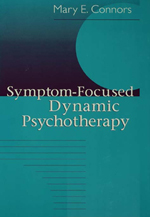Profile
Mary Connors received her Ph.D. from DePaul University and has a Diplomate in Clinical Psychology from the American Board of Professional Psychology. She was a professor at the Illinois School of Professional Psychology and taught there for two decades. Dr. Connors is Co-director of Integrative Health Partners, and has over 30 years of experience as a psychotherapist. Much of her teaching, writing, and supervision has focused on integrative psychotherapy. She has written a number of journal articles and book chapters, coauthored The Etiology and Treatment of Bulimia Nervosa: A Biopsychosocial Perspective, and is the author of the book, Symptom-Focused Dynamic Psychotherapy (The Analytic Press, 2006).








